Unselfishness, Attention To Detail At The Center Of The Worcester Rebuild
Unselfishness, Attention To Detail At The Center Of The Worcester Rebuild
Head coach David Cunniff is rebuilding the Worcester Railers from the ground up — find out exactly how.
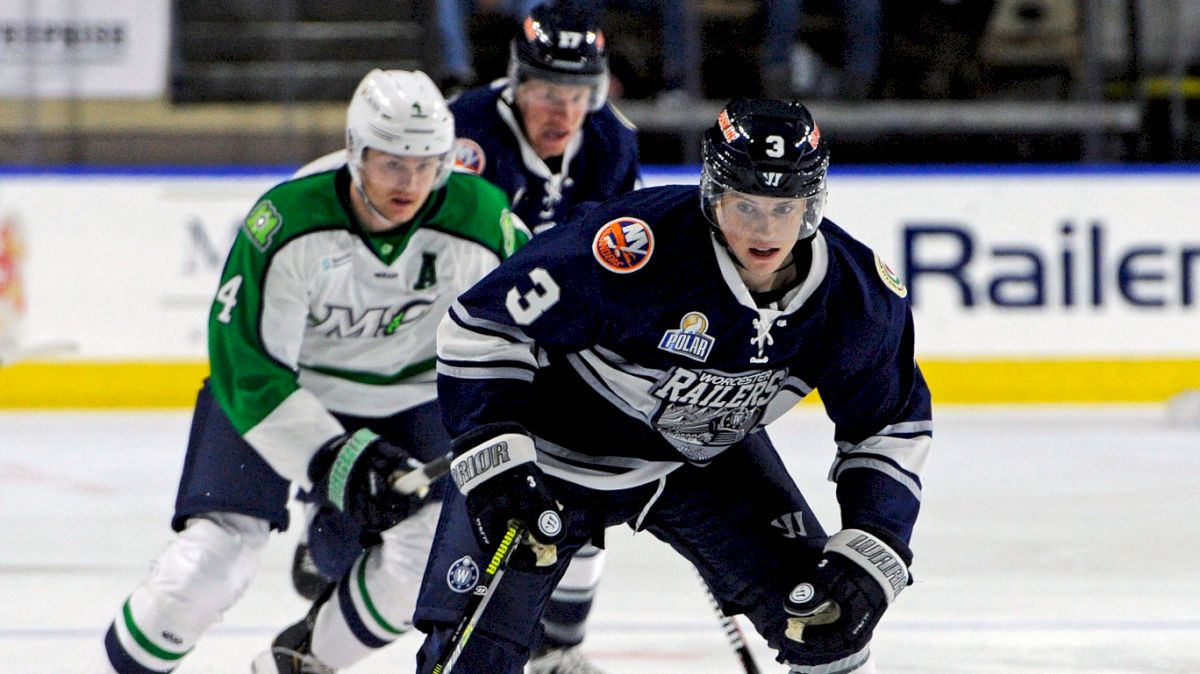
Often, it can be difficult to pinpoint exactly when the fortunes of a struggling franchise change.
On the surface, that may seem especially true of the Worcester Railers, who slogged their way to a 21-36-4-0 record last season to earn a finish in the basement of the ECHL’s North Division.
Ask around, however, and the answer becomes obvious. The results may not have shown it just yet, but anyone around David Cunniff will insist it was when he was brought in as a part of a stunning coaching change made six weeks into last year.
A former ECHL player himself — he made a career as a gritty winger for Jacksonville, Raleigh, Louisiana, and Richmond — “Cunny” had become a fixture in the American Hockey League as an assistant, and had already embarked on his 18th season in that role, but first with a new team, the New York Rangers-affiliated Hartford WolfPack.
The circumstances that got him back to Worcester, where he’d spent eight years as an assistant back when the Sharks had their AHL affiliate there, were, as Cunniff says in an understatement, “unique.”
“I had just taken that job as an assistant coach in Hartford with the Rangers, and John Davidson had just come in as the new president, but I didn’t really know anyone in that organization with the Rangers,” Cunniff told FloHockey.
“I was excited to get to know JD, Jeff Gorton, Chris Drury, Kris Knoblauch, and Gord Murphy; I was so excited to work with those guys and show those guys what I do. I thought I was in a great situation, because they talked about turning Hartford around as part of their rebuild with the Rangers and starting with developing from within. I felt like I was in a perfect situation for myself. When I got a call mid-season from Chris Drury and Kris Knoblauch saying that a team had asked for permission (to talk to me) from the (ECHL), I told them I was in a very comfortable position, I’m in no rush to leave, but that I was interested in talking to them.”
Things moved quickly, and Cunniff was brought in smack in the middle of a stretch with five games in seven days, coaching his new team the same day he was brought in without so much as a morning skate to get acquainted with his new players.
It was a nearly impossible challenge, and one that, especially with a roster that he didn’t have any say in putting together, went largely how you might expect. This year — and Cunniff will have to wait to see how it truly unfolds with Worcester not getting started until January as part of the ECHL’s “split-schedule” format or 2020-21 — will be different, and it’s part of the job that he really seems to relish.
“I’m excited for the opportunity to build the team, that’s the biggest thing,” Cunniff said of getting to put together the team.
“Coaching in the American League for 20 years like I have, you’re coaching management’s players and you’re coaching the scout’s players. I don’t have anything against that, it’s really developed me into a coach . . . I’ve coached every type of player, and I really think it’s prepared me very well for the job that’s ahead of me, and it’s a big job. Taking over the team last year, we were behind the eight ball so much from the beginning and just couldn’t stop the bleeding in time. We made some changes to try to get some guys that would try to play my type of game a little bit more — a 200-foot game — and liked the direction we were going. I liked the buy-in from the players, you can’t say enough about it, the guys were awesome last year.”
The Railers will see some significant names from last year’s team returning — Drew Callin and Ross Olsson, who both racked up double-digit goal seasons among them — but will also feature a bevy of newcomers, with some familiar names to fans of Atlantic Hockey and the ECAC set to come in.
Deciding who to bring back, however, on a team that performed the way Worcester did last year, presented a challenge.
“The guys that I’m bringing back, they had to pass a couple different things that I’m looking for in a player,” Cunniff said. “It’s guys that are unselfish and buy into the logo on the front of the jersey, and guys that have an IQ, so I can help them and they can facilitate what I need them to. They need to know the time and the score, and they need to play within that. Last year, we had a hard time scoring, so I think we need guys who can play a puck possession game, guys that don’t throw the puck away, guys that are comfortable with the puck and comfortable with the grind of keeping the play alive. That’s the type of player we’re looking for, and those are the guys we brought back.”
There is, of course, also the matter of whether players would want to come back given the tumultuous and frustrating nature of the year. Cunniff’s return, however, made it a no-brainer for those who checked his boxes and got asked back for 2020-21.
“Coach Cunniff coming in, he appreciated what I did on the ice and appreciated my game,” Callin told FloHockey. “I rode with some confidence to end the season, so I’m looking forward to this year. When he came in around Thanksgiving, he just said to just get out there and play, let’s see what you’ve got. We had some games around Christmas-time where we competed with Newfoundland, one of the best teams in the league, and we saw some spots where we could compete with anyone in the league. That was a big moment for us, and at the end of the season in March, we were making some strides in the right direction . . . we’re just trying to build off of ‘Cunny’s’ development model and teaching guys how to develop and move their game to the next level.”
According to those in the room, it was also his attention to detail and willingness to work.
Callin, who was in his first full professional season, credited Cunniff for staying after practice to work on simple fundamentals like passing and shooting. Olsson, who will also be entering his second year, echoed similar sentiments, but was also appreciative of just how available his new coach was at all times.
“We were shocked when he came in at the time, but a week or two in, we found that with just working on our games, he’d go out 30-40 minutes early and stay 30-40 minutes after practice,” he told FloHockey.
“He’s a player’s coach. If you text him at midnight asking about something, he’d answer right away. That’s the type of guy that he is. We loved him, and we’re looking forward to getting back into the swing of things with him.”
Mike Ashmore has 17 years of experience covering professional and college sports. You can follow him on all social media channels at @mashmore98.
Related Content
 Replay: Home - 2024 Trois-Rivières vs Norfolk | Apr 24 @ 6 PM
Replay: Home - 2024 Trois-Rivières vs Norfolk | Apr 24 @ 6 PMApr 25, 2024
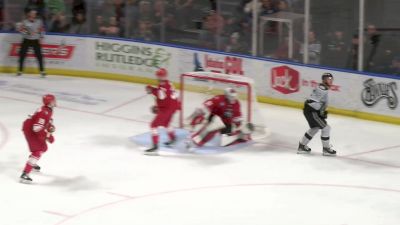 Replay: Away - 2024 Allen vs Idaho | Apr 24 @ 7 PM
Replay: Away - 2024 Allen vs Idaho | Apr 24 @ 7 PMApr 25, 2024
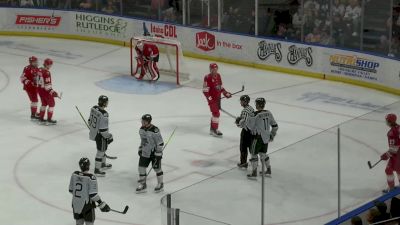 Replay: Home - 2024 Allen vs Idaho | Apr 24 @ 7 PM
Replay: Home - 2024 Allen vs Idaho | Apr 24 @ 7 PMApr 25, 2024
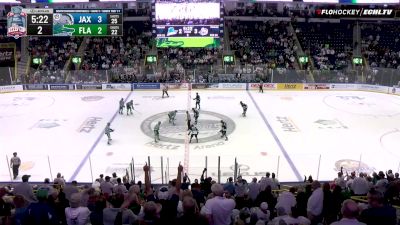 Replay: Away - 2024 Jacksonville vs Florida | Apr 24 @ 7 PM
Replay: Away - 2024 Jacksonville vs Florida | Apr 24 @ 7 PMApr 25, 2024
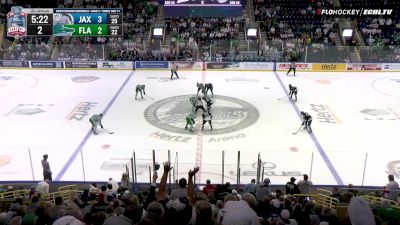 Replay: Home - 2024 Jacksonville vs Florida | Apr 24 @ 7 PM
Replay: Home - 2024 Jacksonville vs Florida | Apr 24 @ 7 PMApr 25, 2024
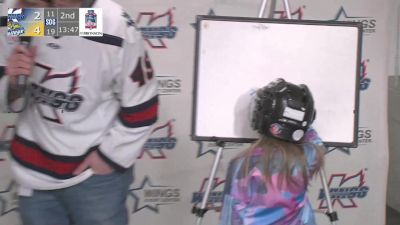 Replay: Home - 2024 Toledo vs Kalamazoo | Apr 24 @ 7 PM
Replay: Home - 2024 Toledo vs Kalamazoo | Apr 24 @ 7 PMApr 25, 2024
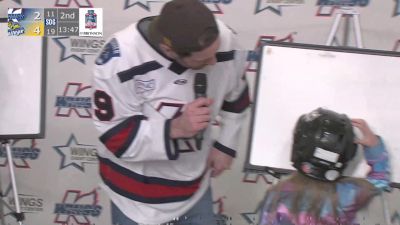 Replay: Away - 2024 Toledo vs Kalamazoo | Apr 24 @ 7 PM
Replay: Away - 2024 Toledo vs Kalamazoo | Apr 24 @ 7 PMApr 25, 2024
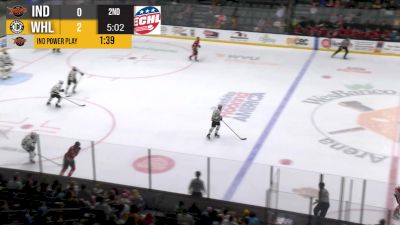 Replay: Away - 2024 Indy vs Wheeling | Apr 23 @ 7 PM
Replay: Away - 2024 Indy vs Wheeling | Apr 23 @ 7 PMApr 24, 2024
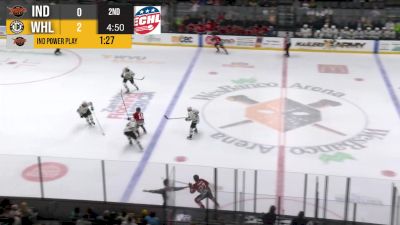 Replay: Home - 2024 Indy vs Wheeling | Apr 23 @ 7 PM
Replay: Home - 2024 Indy vs Wheeling | Apr 23 @ 7 PMApr 24, 2024